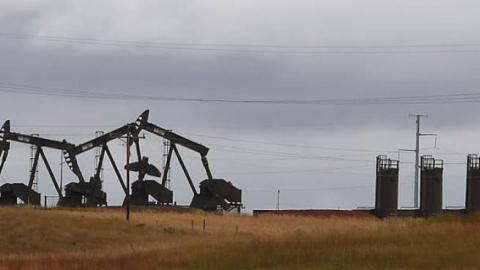As the turmoil in world energy markets continues, U.S. politicians of both parties need to remember that oil is not just another commodity. Access to oil has been a preoccupation of military planners and world leaders since 1914, when Winston Churchill, as first lord of the admiralty, converted the British naval fleet from coal. Concerns about oil supplies, limited by an American embargo, contributed to Japan’s ruinous decision to attack the U.S. in 1941. And it was need for oil that drove Hitler to send the Wehrmacht to the Caucasus, leaving his overstretched and undersupplied forces to face the Red Army’s wrath in Stalingrad.
After the war, ensuring the unobstructed flow of oil to Western Europe was a key to the Marshall Plan’s success. As the Cold War marched on, U.S. domestic demand grew faster than production, and by the late 1960s imported oil, much of it from the Middle East, was essential to the smooth functioning of the American economy. Beyond that, the U.S. ability to ensure the supply of oil to thirsty economies in Europe, Japan and beyond was a critical foundation of the Pax Americana.
The price was a deep and often unhappy engagement in Middle Eastern politics. Jimmy Carter was no raging imperialist, but the threat to the global oil supply led him to proclaim the Carter Doctrine, that the U.S. would use military force if necessary to defend its national interests in the Persian Gulf. Oil kept America tied to the region through decades of wars, terrorist attacks and the rise of global jihadist violence.
Read the full article in the Wall Street Journal


















